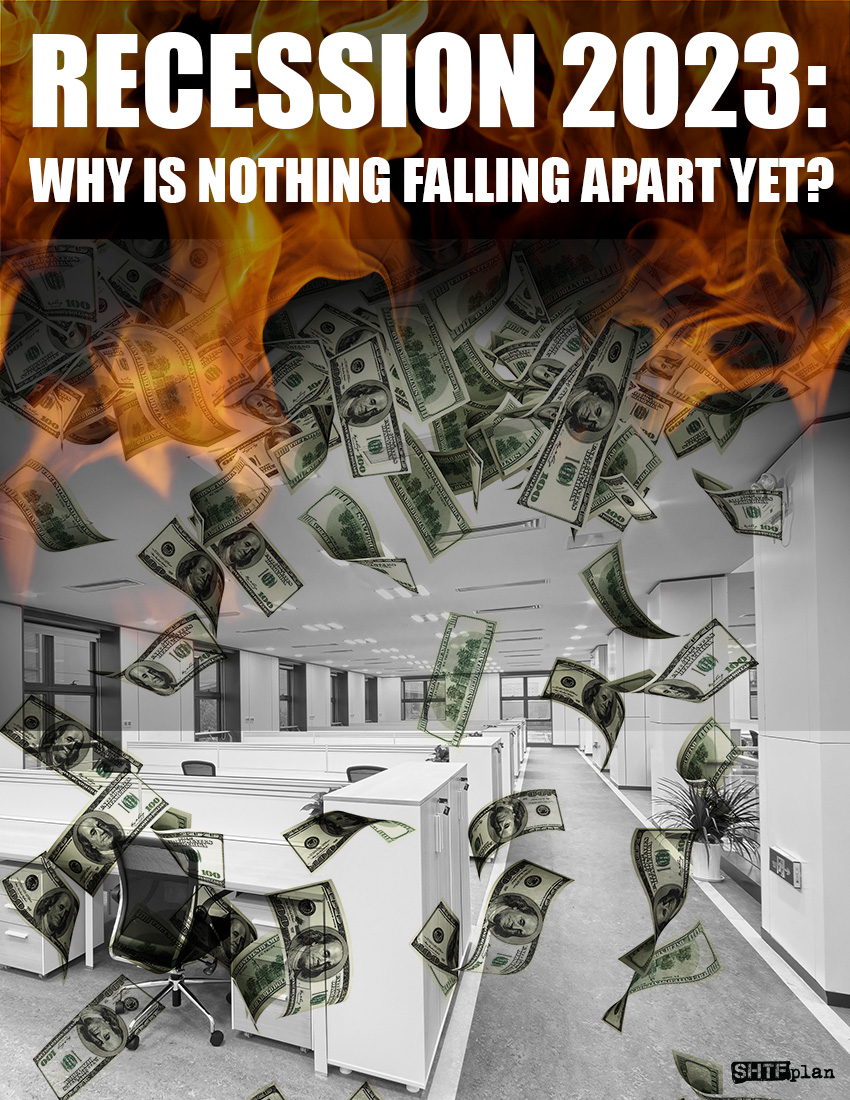This article was originally published by Wanjiru Njoya at The Mises Institute.
The ideal of individual liberty is perennially under attack not only from socialists, as one might logically expect, but also from conservatives who regard individualism as a form of selfishness. The ordinary meaning of selfishness is “caring only about what you want or need without any thought for the needs or wishes of other people,” and many conservatives see this as a major contributing factor in social decline. The conservative British journalist Nick Timothy attributes many social ills to selfishness, arguing that “our society has become more about ‘me’ than ‘we’,” leading to higher rates of crime, antisocial behavior, and a ballooning welfare state as selfish people try to take as much as possible from the public purse while contributing little or nothing to it.
This school of conservative thought regards “excessive individualism” or “hyperindividualism” as a cause of social decay. Its proponents fear that the me-me-me society is partly to blame for the decline of Western civilization and therefore argue that defending individual liberty will only fuel further societal breakdown. As the family continues to be undermined by public policy, books like #MeFirst! A Manifesto for Female Selfishness, which promotes “self-worship” and advises women not to have children, is seen as the logical result of individualism. Individualism is often referred to in this context as “rampant individualism” or “atomistic individualism,” which is associated with unhappy outcomes such as increasing loneliness and depression.
Attributing social dysfunction to individualism explains much of the hostility with which many conservatives regard Ayn Rand’s attempt to extol the virtues of what she called selfishness. A review of Nick Timothy’s Rebuilding One Nation offers an example: “Eighties libertarianism has been left sulking on the margins of conservative policymaking for important reasons, and Timothy is ruthless in pointing out its deficiencies: its reputation for selfish individualism (reading Ayn Rand, Timothy tells us, left him ‘cold’) . . . Timothy ventures that individualism has shallow historical roots.”
Being thus opposed to individualism, these conservatives promote communitarian values or various forms of social democracy. They seek to inculcate in citizens a sense of social responsibility by arguing that society matters more than the individual. This form of conservatism ultimately subordinates the individual to the state. This is clear from Timothy’s suggestion that “we are becoming a selfish society. It is the government’s job to tackle that,” which gives a primary role to government interventions designed to counter selfishness. Timothy suggests that “the family should be put at the heart of both welfare and tax policy,” “tax evasion should be countered, and tax havens closed down,” and “workplace rights and consumer protections [should be] enforced.” He argues that “the call of community is part of the conservative philosophy of paradoxes.”
There’s No Such Thing as Society
Margaret Thatcher is often wrongly depicted by communitarian conservatives, including the so-called libertarian conservative prime minister Boris Johnson when he locked down the United Kingdom in 2020, as a “market fundamentalist” who believed that there’s no such thing as society. As Victoria Hewson observes, “Mrs. Thatcher was not arguing that society does not exist,” a point often overlooked even by conservatives:
One might expect the quote to be taken out of context and used as a political weapon by opponents of the Conservative Party. But it is surprising that it has been mischaracterized by our Prime Minister [Boris Johnson], who would be well versed on the statement in full. “There is no such thing as society,” Mrs. Thatcher said. “There is [a] living tapestry of men and women and people and the beauty of that tapestry and the quality of our lives will depend upon how much each of us is prepared to take responsibility for ourselves and each of us prepared to turn round and help by our own efforts those who are unfortunate.”
In his book In Defense of Freedom: A Conservative Credo, Frank S. Meyer acknowledges that many such conservatives, whom he refers to as “New Conservatives,” appeal to communitarian values because they see individualism as a threat to social cohesion, but he insists that it is only through defending individual liberty that free societies can prosper. He argues:
It is true, of course, that there would be no political or social institutions, nor any meaning to political inquiry, if men lived as single isolated individuals. To insist, as I do, that the individual is the criterion by which institutions and political theories should be judged is not to deny the immediate and obvious meaning of the phrase, “man is a social animal,” that is, that each man has a multifarious set of relationships with other men.
The error made by New Conservatives, as Meyer explains it, lies in hypostatizing the “multifarious set of relationships” between individuals into an entity, society, which itself becomes the subject of rights and obligations owed by individuals to society or owed to the state as the embodiment of society. Meyer criticizes this form of conservativism for overlooking the importance of individual liberty. He describes the New Conservatives as collectivists, explaining that “their position is characterized by an organic view of society; by a subordination of the individual person to society.”
The New Conservatives forget that society only has meaning as a basis for interaction between individuals, and it is through these individual interactions that free societies flourish. As Ludwig von Mises writes: “The concept of freedom always refers to social relations between men. . . . Society is essentially the mutual exchange of services.” Mises depicts individualism as the idea of individual liberty, meaning that the individual is free from state coercion:
The distinctive principle of Western social philosophy is individualism. It aims at the creation of a sphere in which the individual is free to think, to choose, and to act without being restrained by the interference of the social apparatus of coercion and oppression, the State. All the spiritual and material achievements of Western civilization were the result of the operation of this idea of liberty.
Similarly, Friedrich von Hayek observed in “Individualism: True and False” that there is a right and wrong way to understand the meaning of “individualism” and that because rights vest in individuals, the defense of human liberty is always a defense of individual liberty and individual rights. It is important to defend individualism, correctly understood, because, without a concept of individualism, it is all but impossible to express the importance of individual liberty.
Meyer is right to warn conservatives that if the individual is subordinated to society, the individual becomes “a secondary being, whose dignity and rights become dependent upon the gift and grace of society or the state.” Attempting to subordinate individual rights to defend society ends up promoting statism, which in turn is a threat to liberty itself. As Meyer argues, “The proper end of political thought and action is the establishment and preservation of freedom.” Collectivism and statism do not preserve freedom but on the contrary, undermine it. Timothy thinks that undermining freedom would somehow paradoxically lead to more freedom, as he argues that “by accepting constraints on our freedom, we end up freer and happier.” Here, Timothy falls into the error identified by Meyer, namely that collectivist conservatives fail to recognize that freedom cannot be attained through constraint and state coercion:
They would not or could not see the correlative to their fundamental philosophical position: acceptance of the moral authority derived from transcendent criteria of truth and good must be voluntary if it is to have meaning; if it is coerced by human force, it is meaningless. They were willing, if only the right standards were upheld, to accept an authoritarian structure of state and society. They were, at best, indifferent to freedom in the body politic at the worst, its enemies.











It is true, of course, that if you ONLY think of yourself, that is selfish. However, this world radicalizes though and speech to use as a weapon.
in all things from Abortion to Gun rights, if you don’t swallow the narrative in a full “hook, line and sinker” way, then you’re a denier, hater, etc.
If you speak out about the genocide being foisted upon the Palestinians you suddenly become pro-Hamas and anti-Semitic.
If you don’t think children can be aborted up and until the age of 5 years old, suddenly you’ve become anti-Women’s-reproductive-rights.
If you don’t want to take the myocarditis shot, your are an anti-Vaxxer.
If you don’t want to take all the guns away from everyone (except government and police) then your a domestic terrorist gun nut.
…and I could go on and on.
Every type of non-compliance becomes a wholly and complete against whatever you’re speaking against. Its as if everything is all or nothing. Life is NOT that way. Things are shades of gray.
For instance. I am not anti-abortion. I believe it is just another medical tool that can be used to save and improve lives. But, to my Christian family and friends I am pro-abortion. But, to my leftist friends (yes, I do have a few, very few) I am an anti-abortion terrorist.
Damn people! Get a clue.
I saw this back in 2013 or so after the Sandy Hoax bullshit that went on. Barack Obama (The greatest gunsaleman in history) came out with 11 executive orders about firearms. I read them. 9 of them were actually a good thing. One was neutral and one had the potential for abuse. But, my pro guns buddies were like, “How can you even entertain that these are good things?” Understand, NO ONE is more pro-gun that me. But, all but 2 of these EOs were good. But, because it was Barack Obama, my pro-gun buddies were brainwashed into believe they were all bad and would not even read them.
The moral of the stories are this: Government and media corral the population into two camps. If they let us research it and have varying opinions then we might all get together and figure out we don’t need government anymore. Well, and the fact is we don’t need much government. Most of it is illegal anyways.
Thank you Mac Slavo for creating this site. i’ve been on here for 15 years.
Note to Site Operators: Please make the site resend the account verification for “NetRanger” so he (I) can get on.